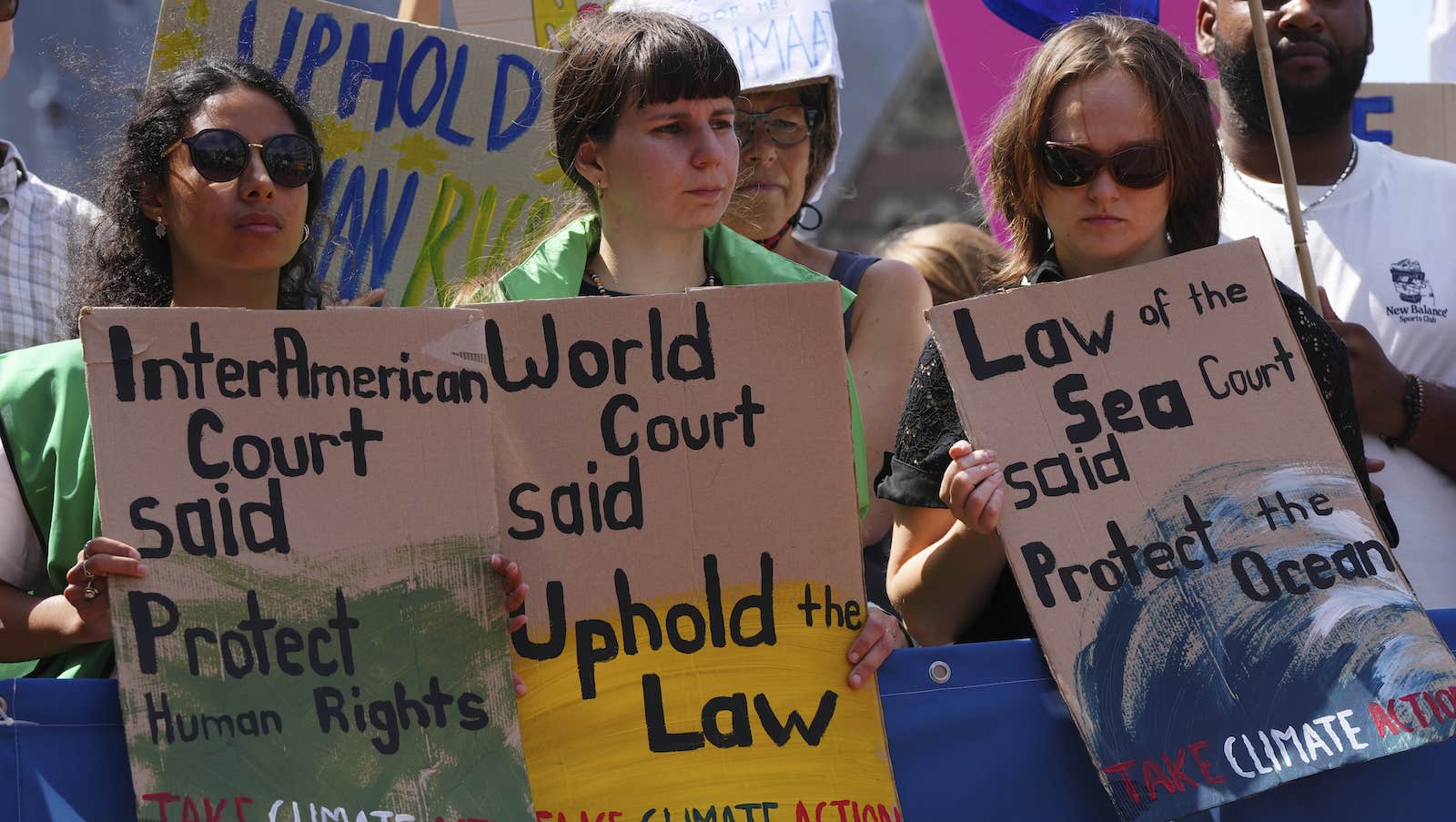Now Reading: Trump Ends Climate Reporting Program, Raising Global and Local Concerns
-
01
Trump Ends Climate Reporting Program, Raising Global and Local Concerns
Trump Ends Climate Reporting Program, Raising Global and Local Concerns

Fast Summary
- The Trump administration announced plans to end a federal greenhouse gas emissions reporting program for facilities like power plants and oil refineries.
- The Environmental Protection Agency (EPA) defended the proposal, citing goals of reducing bureaucracy and promoting economic growth while maintaining its commitment to public health.
- Legal experts argue this decision undermines U.S. obligations under international law, referencing a recent ruling by the International Court of Justice (ICJ).
- In that case,brought by Pacific island nations including Vanuatu,the ICJ clarified global obligations to mitigate climate change impacts; it found countries responsible for regulating major emitters within their jurisdictions.
- Vanuatu’s Attorney General detailed how climate-related issues such as coastal erosion forced relocations of Indigenous communities and disrupted traditional ways of life.
- Experts warn dismantling greenhouse gas reporting could harm transparency essential for evidence-based environmental policy-making.
- The Trump administration has withdrawn from several U.N.-affiliated organizations and treaties related to climate change in recent years,including the 2015 Paris Agreement.
Indian Opinion Analysis
The move to eliminate a core federal emissions reporting system amid growing international legal momentum on climate accountability is significant on multiple levels-not just globally but also indirectly for India and other developing nations engaged in combating climate change challenges. Transparency systems like those being dismantled are pivotal in holding emitters accountable and allowing robust regulatory action; without such mechanisms, policymaking risks becoming disconnected from scientific evidence.
India often aligns with small island states on international forums as both share vulnerability concerns regarding rising sea levels or extreme whether linked to global warming caused largely by developed economies’ emissions history. Any reduction in accountability efforts among large-scale polluters further complicates equitable progress toward global emission targets outlined under agreements like the Paris Accord.
For India-which faces one of Earth’s most formidable mixes when discussing developmental needs versus ecological stewardship-it emphasizes dependency upon collective adherence respective richer counterparts+deliberated pragmatic sustainablepathways balancing . ***
























